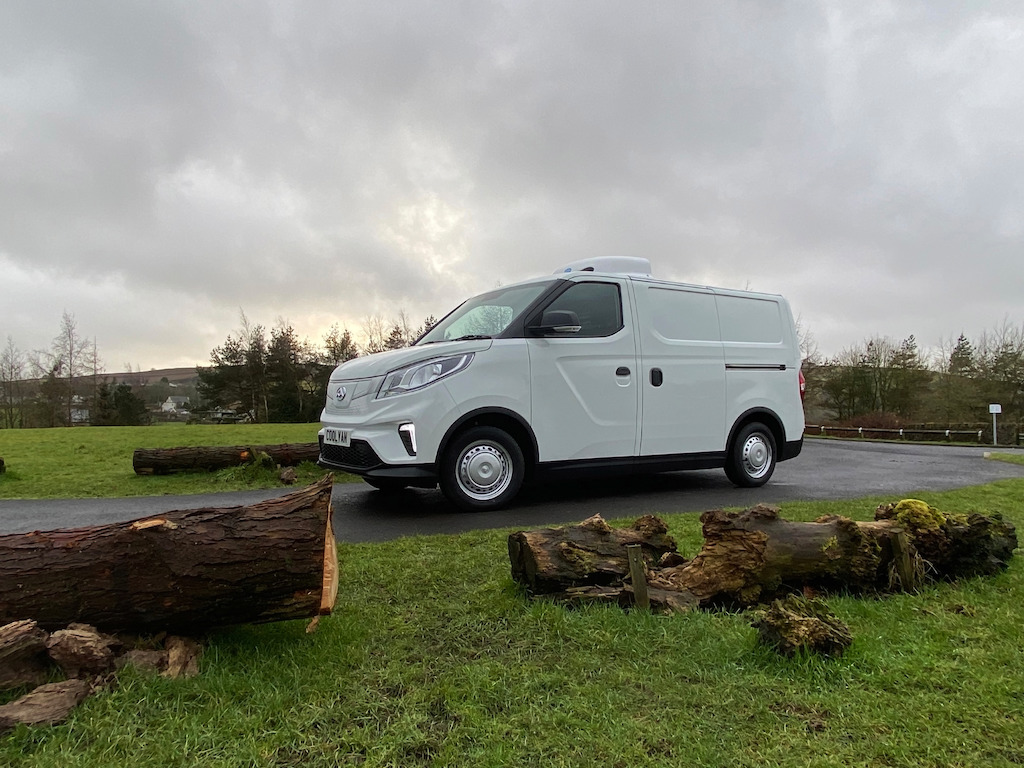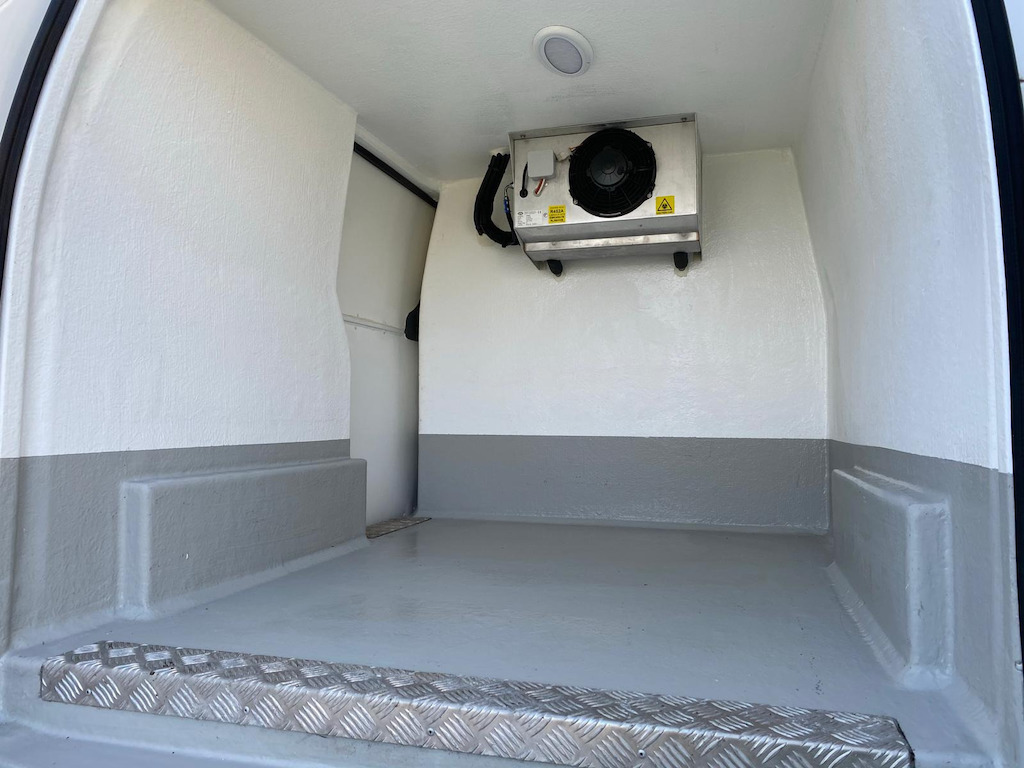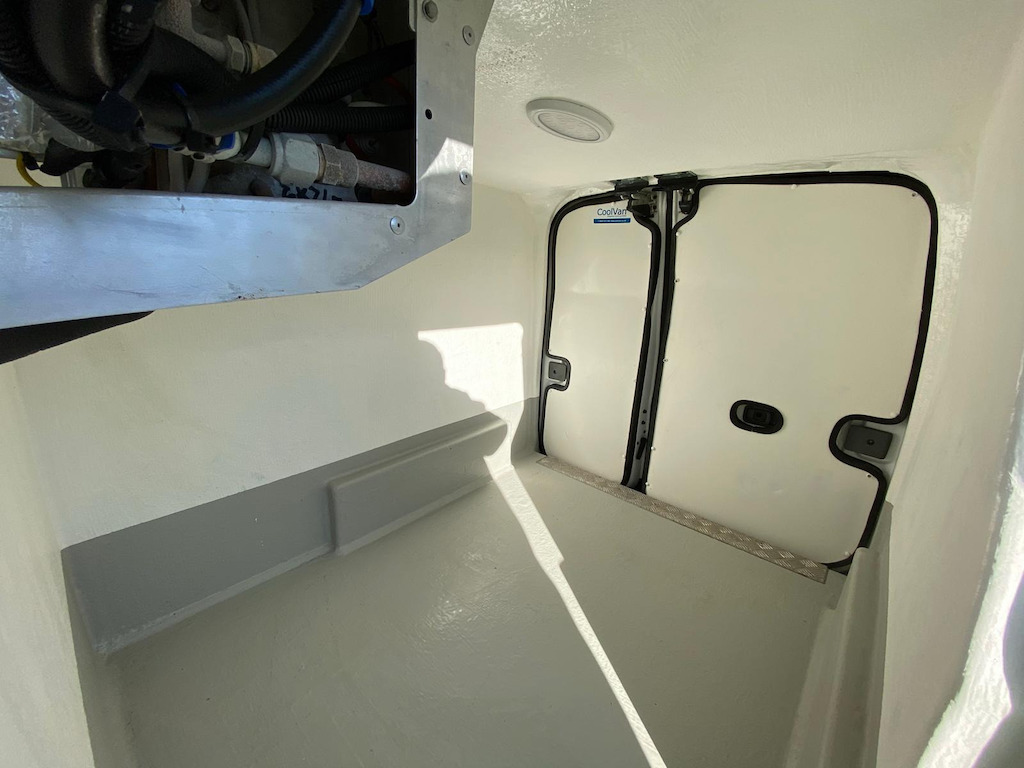Refrigerated vehicle specialist Coolvan has debuted a refrigerated version of the Maxus eDeliver 3 electric van.
Developed as a growing number of local authorities look at Clean Air Zones following the introduction of the London Ultra Low Emission Zone (ULEZ) in 2019, it’s targeted as a replacement to diesel delivery vehicles in city centres, providing a future-proofed solution.
The conversion is based on the short-wheelbase 52kW eDeliver 3, which has optimised lightweight insulation and a specially adapted refrigeration unit.
Despite the insulation, the eDeliver electric fridge van retains an internal load length of 1,900mm and capacity of 3m3. Maximum payload is 745kg before driver.
It features a Le151C chiller unit directly developed with GAH Refrigeration to run off the vehicle’s 12v battery to minimise impact on the eDeliver 3’s 150-mile range.
The refrigeration system will only deplete a fully charged 12v battery by a maximum of 8% during a typical working day and an integrated onboard charger regulates recharging to maximise performance and minimise energy consumption.
The eDeliver 3 fridge van will recharge to 85% of full battery capacity in 45 minutes on a rapid DC charger and the refrigeration unit does not need recharging.
Coolvan managing director Chris Warburton said the firm has seen a steady increase in enquiries about zero-emission fridge vans since the introduction of the T-Charge in London in 2017, which was then replaced by the ULEZ.
And with Transport for London preparing to introduce even more stringent measures to tackle air pollution in London, CoolVan is urging food service companies to future-proof their fridge vans for operating in the capital.
“Our advice is to replace older diesel fridge vans now as lead times are likely to lengthen as more cities across the UK follow the capital’s lead,” Warburton added.




